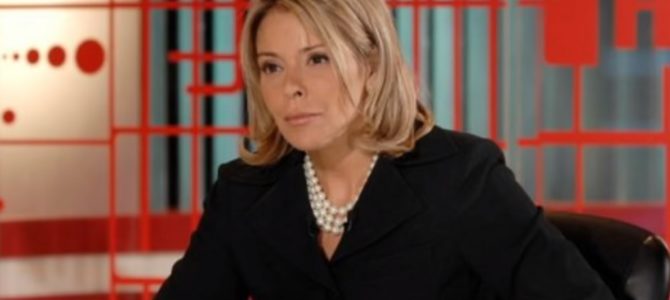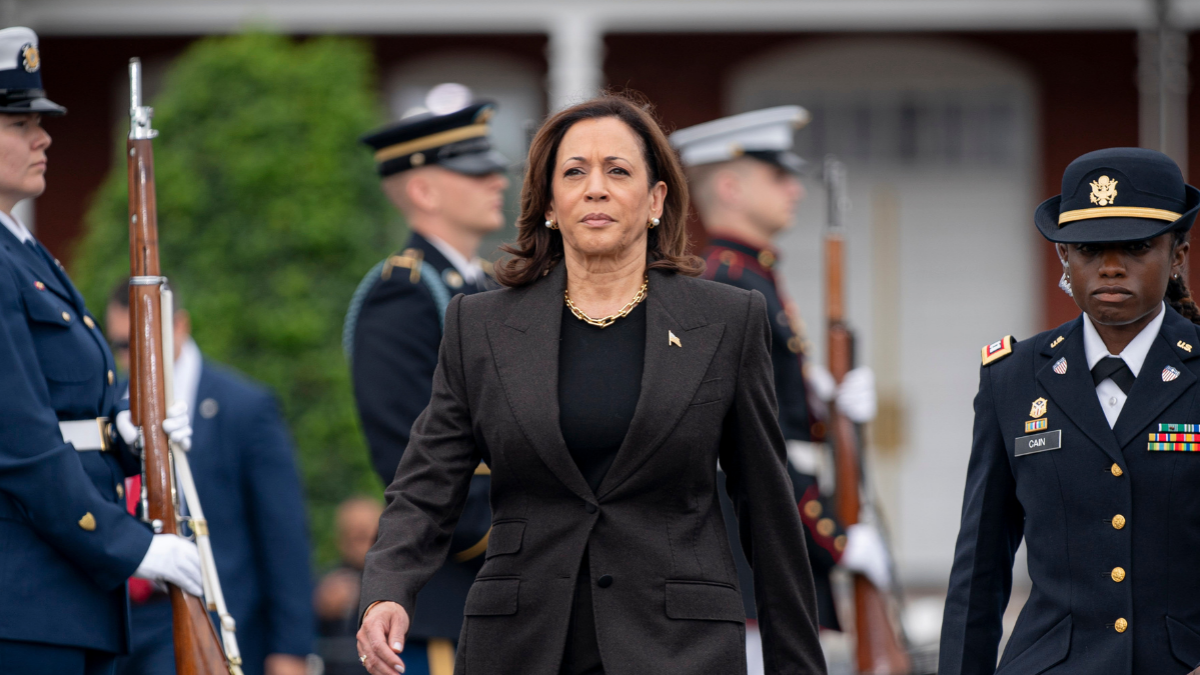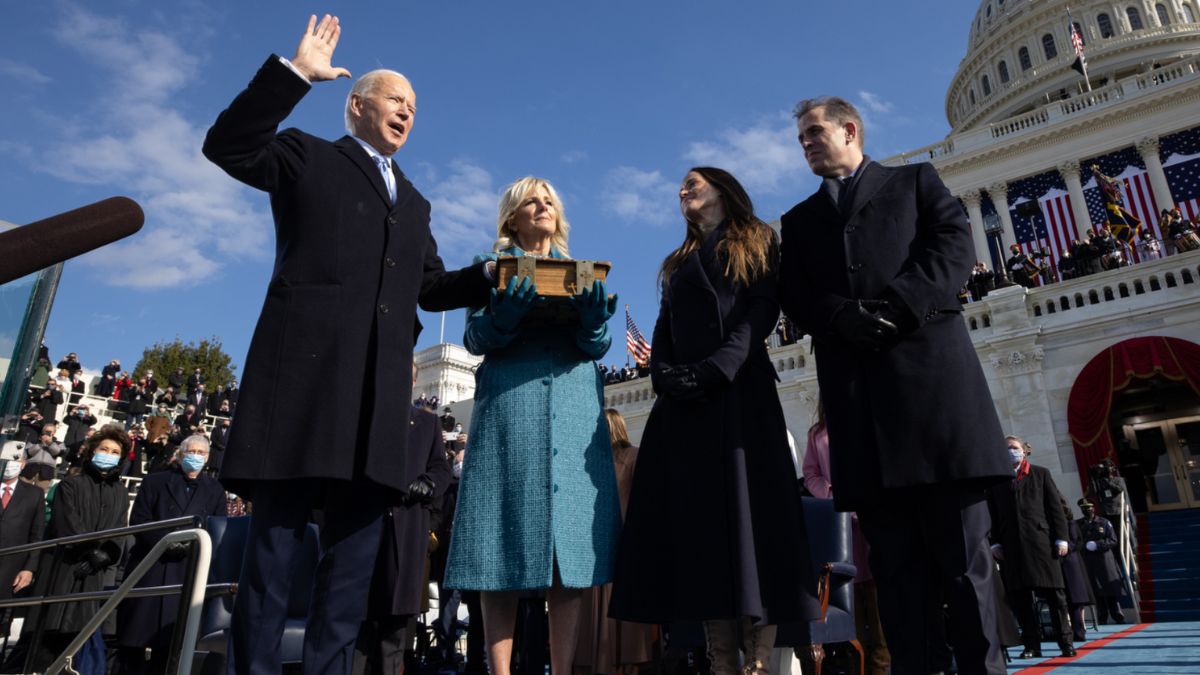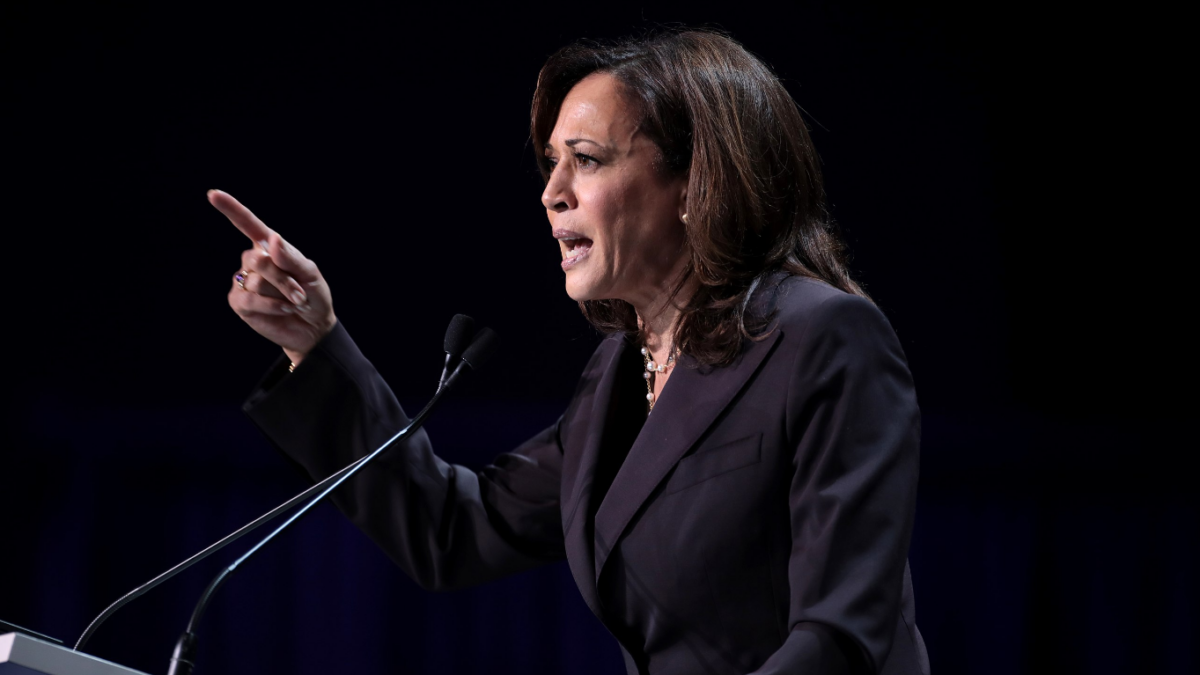
In 2004, the Chicago Tribune referred to her as “the most watched TV reporter nobody in America has seen,” and this turn-of-phrase seemed stunningly apt. Baghdad-born Dalia al-Aqidi was 36, and a fixture of Middle East media. In sharp contrast to programming on Qatar’s popular Al-Jazeera, Dalia was a leading voice on Alhurra, an American-sponsored television channel broadcasting in the Middle East and delivering a strongly pro-America message.
Al-Aqidi was the only Iraqi covering the 2004 presidential campaign within the traveling White House press corps, providing news on Washington to millions in the Arabic-speaking world. Fifteen years later, the famed Iraqi reporter is running for Congress against the darling of the left, also an immigrant from a Muslim-majority country, a woman named Rep. Ilhan Omar, D-Minn.
Omar was catapulted to leftist fame after being elected to represent Minnesota’s Fifth District in the 2018 midterms and espousing radically left-wing policies. She eventually joined forces with three other socialist-leaning, freshman voices in the House, the anti-Trump foursome collectively being referred to as the “Squad.” But Omar will have competition in the coming election from al-Aqidi.
Dalia came to the United States in 1993 as a refugee, the daughter of Ghazwa al-Alkhalidi, a distinguished Iraqi actress, and Fakri al-Aqidi, a prominent figure in the Iraqi film industry. Given her parents’ roles in the arts, her childhood was spent protected under the Iraqi government; however, as Saddam Hussein came to power and Dalia approached her late teens, she and her family realized something was grievously wrong with Saddam’s regime.
“I had nightmares for years and years that I wake up and I’m in the middle of Iraq during Saddam’s period. People would recognize me and run after me to try to capture me and I was running, running, running,” al-Aqidi told the Chicago Tribune. “I left with two suitcases. My grandmother didn’t know. My aunts didn’t, my uncles. No one knew that we were leaving,” al-Aqidi said. “We had to hide the cash between the covers of the suitcase, knowing that if they catch us, we’ll be dead.”
Following her escape from Iraq, al-Aqidi traveled throughout the Middle East with her mother and infant brother, doing an eclectic mix of paid media stints, including hosting children’s shows, reporting news, and dubbing cartoons from English to Arabic. At the advice of those in the Iraqi opposition, al-Aqidi and her mother eventually linked up with Radio Free Iraq in Saudi Arabia, where Dalia was able to hone her media skills more seriously. Shortly thereafter, she moved to the United States.
Since her arrival nearly three decades ago, Dalia has maintained her foothold in the media, working as a reporter at Alhurra and more recently, as a contributing writer to al-Arabiya. She served as an anchor on several television news and commentary programs from Beirut, Lebanon and Tripoli, Libya. Away from the public eye, she led a team of analysts at an intelligence firm, providing cultural background and geopolitical analysis for both government and corporate clients, her work ultimately recognized by both the U.S. and Iraqi governments.
When I asked Dalia to explain her foray into the congressional space, her answer spoke to the profound duty she feels to replace Omar. “I am running for Congress in Minnesota’s Fifth District because I believe Ilhan Omar is doing irreparable harm to both Minnesota and to America—and she must be stopped,” she said.
“This wonderful country has given me so much. As an American, and especially as an immigrant and a Muslim, I felt it was my patriotic duty to try,” she said. “Her consistent antisemitism and hateful rhetoric are toxic; they serve only to gain attention for herself at the expense of our fellow Americans.”
Dalia offered a sharp condemnation of Omar’s politics, darkly stating, “I recognize her far-left politics from the Middle East that I was lucky to escape from.” She pointed to the anti-Americanism latent in Omar’s rhetoric, which has been combined with “politics of extremism and grievance.” Al-Aqidi notes, “I have used my life experience to expose oppression and boost the U.S. while Omar has done the opposite—stoking fear, inspiring hatred, inciting violence, and embarrassing America.”
On U.S. foreign policy, Omar’s politics are strangely illogical, coming out vociferously against the usage of sanctions, unless those sanctions are employed against Israelis. Omar openly questioned why the United States deigns to support Israel and not Iran, the largest state sponsor of terror, and has admitted to “chuckling” when she hears Israel referred to as a democracy.
Dalia offered a scathing response when I asked her to hypothesize on the source of Omar’s warped approach to U.S. foreign policy in the Middle East. “Ilhan Omar’s positions on the Middle East are not complicated or very sophisticated: Everywhere she supports Islamists and enemies of America and Israel, and there are no exceptions.”
Al-Aqidi cited examples of Omar’s positions. “Iran is an enemy of the United States and Israel, so Omar supports them. She attacks Egypt and Saudi Arabia because they fight against the Muslim Brotherhood. She defends Qatar and Turkey because they support and fund the Muslim Brotherhood.” Dalia summarized Omar’s approach, stating, “She doesn’t care very much about the details—millions of people suffering at the hands of Iran’s militias, for example.”
When questioned about the specifics of her own national security platform, Dalia was brief and direct, voicing her support for President Trump’s maneuvers in the Middle East.
“I believe that there are many dangerous individuals, both Islamists and others, who wish to do harm to America. President Trump is making efforts to make the country safer by taking action on the [southern] border and in the Middle East.” As a legal immigrant, Dalia endorsed the Trump administration’s attempts to curb illegal immigration. “Those wishing to do harm to America are attempting to gain access to this country every day.”
She offered her free-market stance to Minnesotans’ economic woes, recognizing that small businesses continue to struggle in her district. She emphasized how Omar’s socialist tendencies would spell disaster for entrepreneurs. “With [Omar] in power, more businesses will close and more people will become unemployed.”
I asked al-Aqidi to reflect on Ilhan Omar’s frequent attempts to market herself (and the Democrats’ platform) as representative of Muslim Americans. Al-Aqidi’s response was highly critical of the left’s use of identity politics to force political beliefs on large groups of people. “The media and the far-left try to put me, and Muslims like me, into a box—telling us, ‘This is what you have to believe if you’re a Muslim, and they’re all positions of the far-left.’”
Dalia didn’t mince words with regards to how the left views politically conservative Muslims. “The other side of that, of course, is that if you’re a conservative, if you support Donald Trump or are opposed to Islamists and Muslim Brotherhood-tied pressure groups like CAIR, you’re some kind of counterfeit Muslim. That’s nonsense.”
Al-Aqidi diagnosed the level of political polarization in the country as one of the more profound problems we face as a nation, but largely unreflective of reality.
“Our biggest threat today comes from our disunion,” she says. “We are at each other’s throats. Most Americans love their country. They love freedom and want to be free from government control over their lives.”
One significant source of the divisiveness, according to Dalia, is a political enterprise the left peddles every day. “Identity politics is a big factor in our disunity. The idea that, as a Muslim or a woman or an immigrant, I need to have a set of predictable, left-wing political positions is dangerous.”
She then explained the way in which identity politics suffocates genuine conversation by fomenting tribalism. “It makes debate about the important things in politics impossible, because it reduces the whole debate about important issues into ethnic and tribal warfare.”
She asserted, “This is how it is in the Middle East—Sunni versus Shia, Muslims versus Christians and Jews, and on and on. I know because I fled from there. It’s not how America was founded, and it’s not the America that I love.”
Dalia emphasized the importance of challenging incumbents like Omar, representatives who receive perennially positive coverage from the media while waging warfare on American values. “That’s where the politics of extremists like Ilhan Omar will lead—where the issues we argue about are just reduced to identity—and I want to do everything in my power to stop that.”
Given the media’s reflexively adoring coverage of Omar, Dalia will likely have her work cut out for her, but she seems ready for the challenge, as clearly emphasized in her recent campaign ad, which went viral shortly after its release. As Dalia assured me, “I was inspired to launch my campaign because I believe the residents of this district need someone fighting for them, not DC insiders and foreign influences, and our country needs leaders who believe in and adore America.”
It's time to defend America! I'm running for Congress because we're not as divided as Ilhan Omar and the far-left would have us believe. I'm running to bring us closer together. https://t.co/sa9dsHHTeO
— Dalia al-Aqidi (@Dalia4Congress) January 16, 2020









